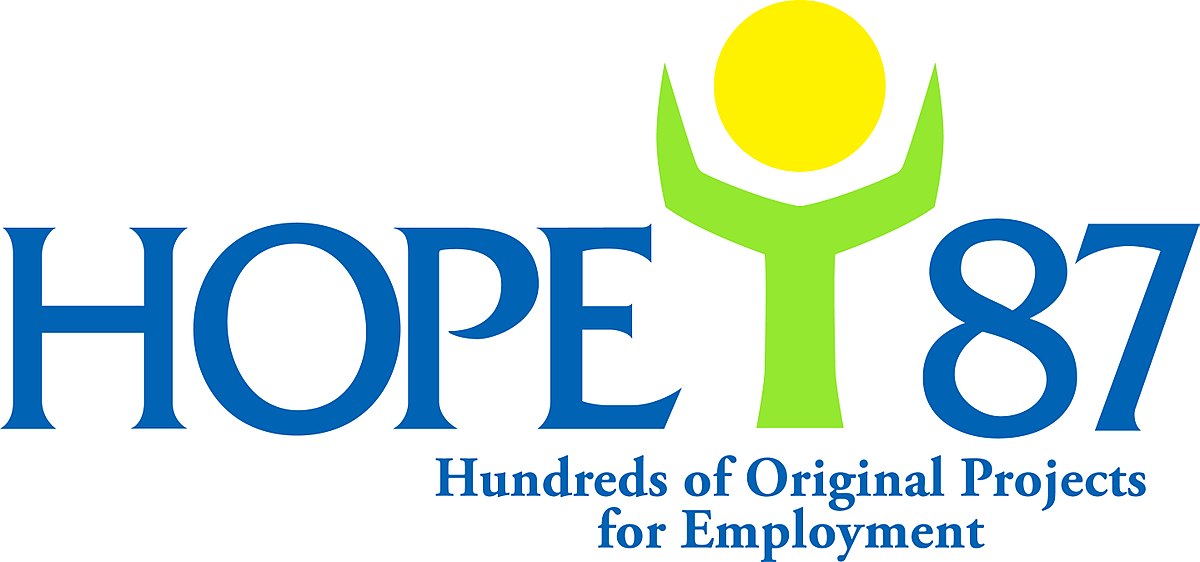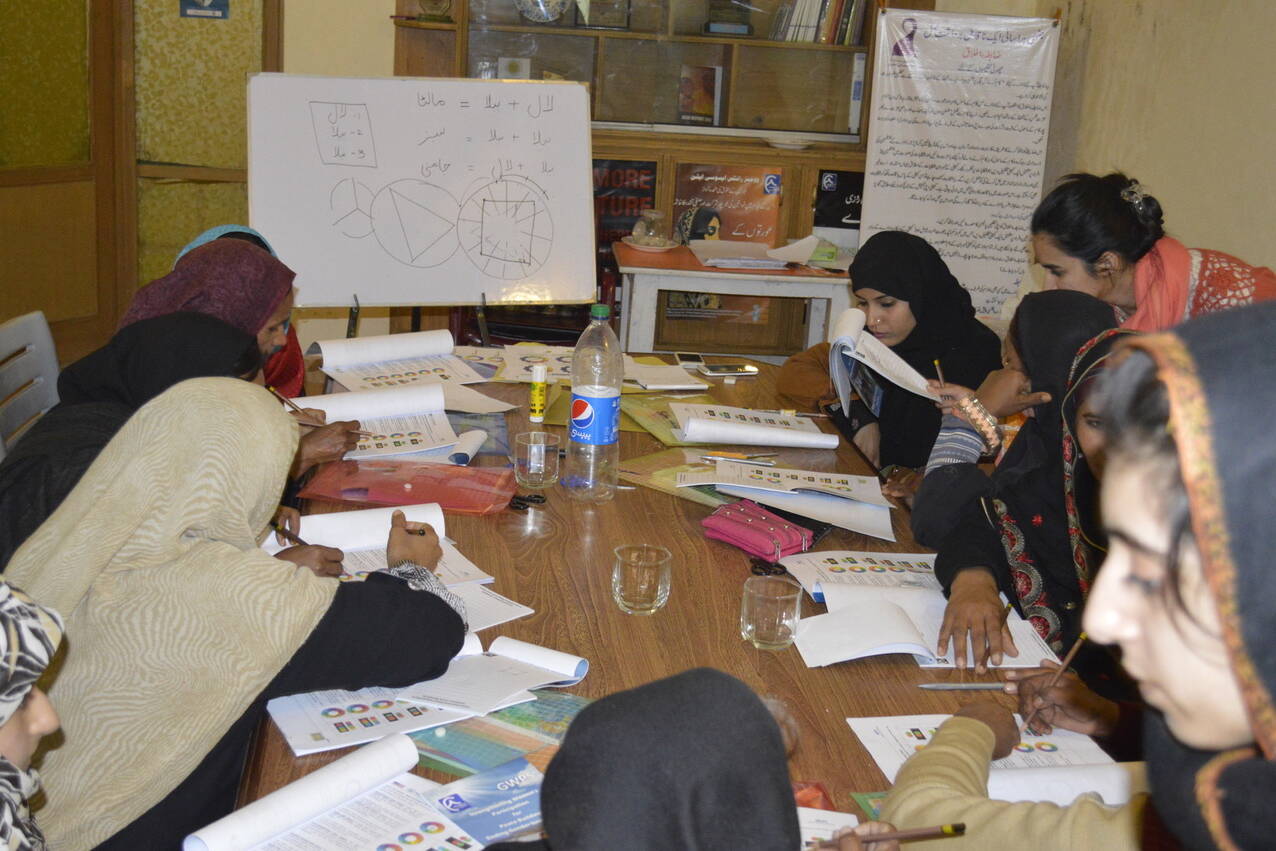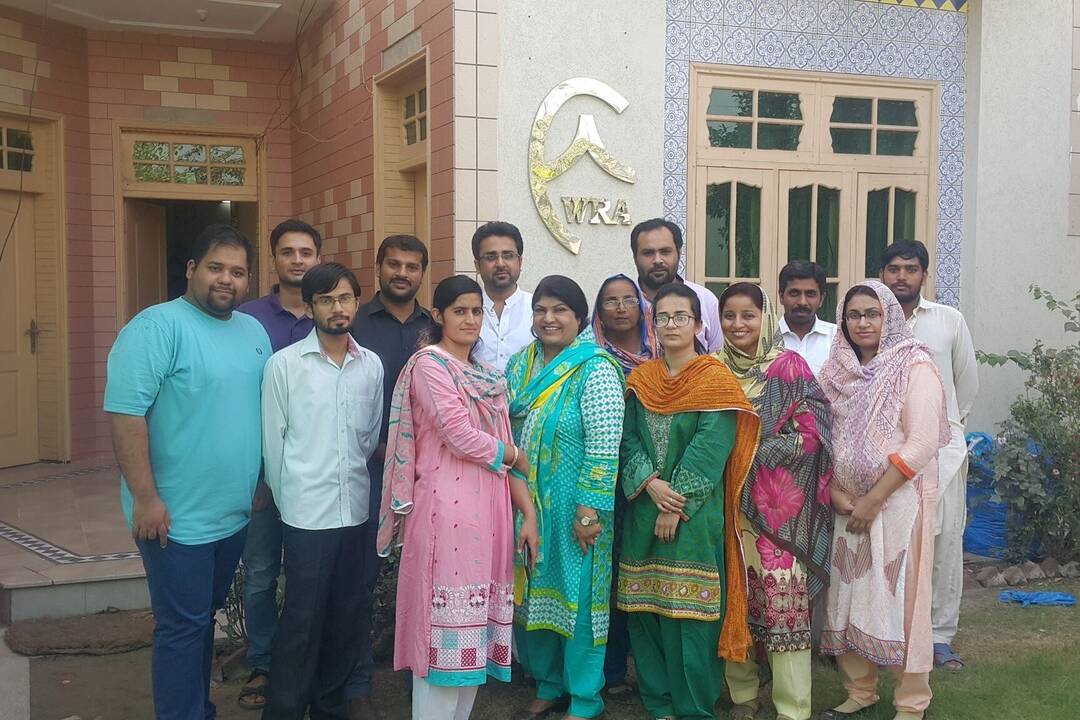Youth Employment through Skills Centre for young women
The estimated population of Pakistan is 186 million. Due to high birth rates, Pakistan is facing a rapid population transition. The US Bureau of Census analysed in 2010, that 62 percent of the population are in the working age, but only 30.1 percent of this group take part in income generating activities. The next generation in Pakistan will face major problems, because another 85 million people will enter the work force in the coming decade (GOP, 2012-13).
This uncontrolled increase in population growth creates enormous problems for the state relating to the provision of educational opportunities, food security, health care and other necessary parameters for a sustainable development. Taking care of the immense group of youth wanting to enter the labour market will be a difficult mission.
The engagement of women in working activities in Pakistan is widespread and their contribution ranges from the formal to the informal sector, however with a majority of their activities performed in the informal sector. Women also perform a lot of invisible activities that are not considered as economic activities. Labour force participation of Pakistani females is up to 13.29 million out of a total labour force of 57.24 million (labour force survey, 2010-2011) although women constitute about half of the total population in Pakistan. Young people, especially girls and young women, don’t have enough options for skills development training and in the same way encounter quite substantial difficulties in finding work and employment opportunities with decent wages.
Social and gender discrimination, lack of access and control over resources, limited educational opportunities, weaker family support, absence of self-actualization, and little entrepreneurial orientation are some of the impediments classified as barriers to the growth of women entrepreneurs in Pakistan. Women are faced with a number of such limits, i.e. finances, cultural orientation, family set-up, market access, and orientation, which are limiting them to become a part of the business world. And yet the increased participation of women in business and other aspects of life in developed and developing nations is making them an emerging force, that policy makers cannot afford to ignore. The world’s modern economy, and in fact democracy, depends on the participation of both genders.
The impact of these factors is the continuous negation of the equal status of women and their role in society. This situation is even worse in South Punjab areas of Pakistan. Especially, in the rural areas, where women are not allowed to access education or to join the work force, as their role is limited only to procreation of children.
Economic empowerment of youth, especially of girls and young women and with a particular scope of decent employment, is the key way to confront gender-based discrimination and violence, a fact that we learnt during realization of several women-centred projects in different parts of Pakistan. To combat the trend of structural discrimination, we strive to increase the knowledge, skills, confidence and financial assets of youth, especially of girls and young women, by empowering them through developing their capacities and increasing their access to economic activities, as a substantial contribution to poverty reduction.
The programme’s overall goal was to empower youth, especially girls and young women, by strengthening their skills and voices for economic self-reliance to take a leadership role in poverty alleviation initiatives in South Punjab, Pakistan. This was achieved by developing technical and management skills for enhancing disaster resilient income opportunities among young people in the fashion industry in Multan district, South Punjab, through improved access, training and management of micro-enterprises. It also included training in women’s rights, gender equality, self-empowerment tools, management, business planning, sustainable fashion/garment production, community-based disaster risk reduction, basic accountancy and bookkeeping. The direct target group of this project were 430 youth (100% young women). The age range of the target groups was approx. 15-22 years with a minimum of accomplished class five to graduate in school and college. The indirect target beneficiaries of this project were 2,580 family members.
Project Type
Development Project
Project Duration
01/01/2017 to 28/02/2019
Status
Completed
Country
Pakistan
Region
South Punjab
Donor(s)
You Foundation – Education for Children in Need, ADC


